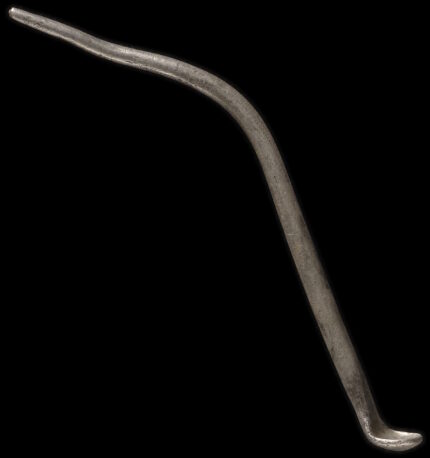Roman silver toilet spoon found in Wales

The ligula was a small spoon with a slender handle used to scoop cosmetics, perfumes or unguents out of long-necked bottles. (So toilet in the sense of ablution rather than going to the lavatory.) They are usually plain and undecorated, although some examples have been found with molded bands or incised lines. They were created out of a single piece of metal crafted into a cylinder and then the end hammered into the bowl.
Most of the ligulae that have been found are made of copper alloy. The silver ones are more rare and based on some of the contexts where they have been found, archaeologists believe the silver examples may have been dedicated to medical purposes (eg, for pharmaceutical portioning, or as surgical curettes or sounds) rather than used for personal hygiene or adornment.
Because it is more than 300 years old and composed of more than 10% precious metal, the ligula meets the criteria for Treasure under the Treasure Act of 1996. It will now be assessed to determine a fair market value by the Treasure Valuation Committee. Local museums will then be given the opportunity to acquire the toilet spoon for the assessed value. The Cowbridge and District Museum has already expressed interest in acquiring the ligula for its collection.
* This article was originally published here
Tag:








No comments:
Post a Comment